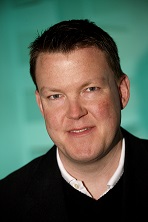DECIDIS ARCHIVE
—————————-
EVENTS
Wednesday, February 6, 2019, 14:00-15:30
IT University, Auditorium 3
Nancy Baym will present her latest work in a talk on
New Media, New Work, and the New Call to Intimacy: The Case of Musicians
The 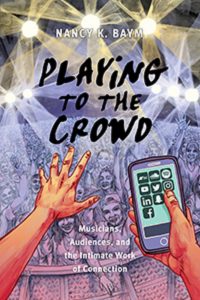 architectures and norms of new media push people toward sharing everyday intimacies they might historically have kept to close friends and family. As more people are pushed toward gig work, the original gig workers – musicians – provide an exemplary lens for exploring the implications of this widespread blurring of interpersonal communication into everyday practices of professional viability. This talk draws on her new book “Playing to the Crowd: Musicians, Audiences, and the Intimate Work of Connection”, plus nearly a decade of work on the tensions that musicians – and many others – must manage as social media platforms become integral to professional life.
architectures and norms of new media push people toward sharing everyday intimacies they might historically have kept to close friends and family. As more people are pushed toward gig work, the original gig workers – musicians – provide an exemplary lens for exploring the implications of this widespread blurring of interpersonal communication into everyday practices of professional viability. This talk draws on her new book “Playing to the Crowd: Musicians, Audiences, and the Intimate Work of Connection”, plus nearly a decade of work on the tensions that musicians – and many others – must manage as social media platforms become integral to professional life.
There will be time for discussion after the presentation for discussion. Participation is open and please share this invitation with students and colleagues.
BIO
Nancy Baym studies how people, audiences and workers such as musicians understand and use communication technologies in their everyday relationships. She is the author of Personal Connections in the Digital Age (Polity Press, 2010/2014), now in its second edition, Internet Inquiry: Conversations about Methods (co-edited with Annette Markham, Sage 2009), as well as dozens of articles and book chapters.
She earned her Ph.D. at the University of Illinois at Urbana-Champaign in 1994, writing the first Ph.D. dissertation on online community (later published as Tune In, Log On: Soaps, Fandom and Online Community; Sage, 2000). She was a co-founder and is Past-President of the Association of Internet Researchers and serves on the editorial boards of several new media and Communication journals. Before coming to Microsoft, she was a Professor of Communication Studies. She is a Research Associate in Comparative Media Studies/Writing at MIT.
More about Nancy Baym’s research and publications here: http://nancybaym.com/
Information i det digitale samfund
Resultater fra ny DECIDIS survey
Fredag d.1.9.2017 kl. 13.00-14.30
Lokale 5A14-16, IT Universitetet i København
Forskningsnetværket DECIDIS præsenterer resultaterne af den årlige survey af danskernes brug af digitale og sociale medier til blandt andet politiske deltagelse. Resultaterne udfordrer den udbredte forestilling om de sociale medier som “ekko-kamre”, hvor borgere blot bekræftes i deres holdninger af ligesindede. Surveyen giver samtidig anledning til at diskutere forholdet mellem de nye digitale aktører som Facebook og Google.
Oplæg af:
Luca Rossi: DECIDIS survey 2017, insight into Danish information practices
Aske Kammer: De nye digitale aktører – infrastruktur eller redaktører?
Christian Loiborg: Massemedier og netværksmedier – praktikerens perspektiv
Ordstyrer: Gitte Stald, lektor, ITU
Der bliver rig lejlighed til spørgsmål og diskussion mellem og efter oplæggene.
Alle er velkomne – del gerne.
Læs mere om DECIDIS her: https://blogit.itu.dk/decidis/
Luca Rossi is Associate Professor at ITU. He researches in the field of computational methods for the social sciences, social media analysis and social network analysis. He is part of the ITU team for the EU H2020 project VIRT-EU Values and ethics in Innovation for Responsible Technology in Europe. He authored more than 40 publications in the area of social media studies, social networks and political engagement.
Aske Kammer is Assistant Professor, PhD. His research concerns the questions of what happens to the “old” institutions and structures of society in a digital environment with new media technologies. His analytical focus is on media policy, economy, and management, on social media, and on how news organizations adapt to the digital age.
Christian Loiborg er chef for sociale medier i Danmarks Radio. Han er uddannet journalist og har tidligere arbejdet i blandt andet Jysk Fynske Medier.
DECIDIS @ Techfestival. Copenhagen (Sept. 7h, 2017, kl. 10-12, IT University Copenhagen)
What is the future of democracy in times of ongoing digitization? How can we be informed in the digital age? What does digital democracy mean in practice? Is it safe to vote online?
Come and join the discussion on “Digital citizenship and the future of democracy“, Sept. 7th, kl. 10.00 – 12.00 at the IT University Copenhagen. As a participant you’ll be introduced to the latest theories in the field and afterwards you will practically explore them through case studies and workshops. Finally, we’ll discuss with all participants social implications of on-going processes of digitization and how we can actively shape the future of democracy.
About Techfestival. Copenhagen:
Starting a new conversation on the values and principles that guide technology
Introducing the first people and topics that shape the agenda of Techfestival 2017.
A few months ago we set out to describe and share a progressive, human-centered perspective on technology. To find the others — to give birth to a new narrative, one beyond Silicon Valley’s insatiable addiction to innovation and growth. It is about time to remind ourselves of the noble idea of progress, to reflect, to critically reassess what we want technology to do, and what we want to do with technology. To sum it up, let’s move things in a direction that works for all of us. Already, hundreds of co-creators joined forces to bring life to the inaugural Techfestival, September 5–10. Today, we’re sharing with you what they have in stock for you; and there’s much more to come. You can click your way through the entire program here.
How is racist propaganda changing with the development of digital media technologies?
- Professor of Sociology, Jessie Daniels, Hunter College, NYC.
- Research Assistant, Johan Farkas, ITU/University of Bergen.
15 May 2017 // 13:00-14:00 // ITU – Auditorium 3 // Facebook event
Everyone is welcome (including students), no registration required.
The election of Donald Trump as President of the US followed an unprecedented campaign in which savvy white nationalists and members of the “alt-right” movement use culture jamming tactics on Facebook and Twitter to inject racist memes like #WhiteGenocide into popular political and cultural discussions. And, @realDonaldTrump retweets them all to his 24 million-plus followers. In response to this increased visibility and amplification of white nationalism in the mainstream of US political culture, white liberals express shock at what they perceive is a new development. While the Women’s March the day after Trump’s inauguration offered some hope for charting a different path, the fact remains that 53% of white women voted for him. In this engaging talk, Jessie Daniels draws on 20 years of research into the ways racism spreads on and offline to demonstrate that white supremacy is a real, and persistent, threat to democratic societies.
Digital media platforms provide powerful new means of communication, also for those promoting racist worlviews. In this talk, Johan Farkas presents the results of his research on disguised racist propaganda in digital media. The presentation focuses on how cloaked Facebook pages as well as readers’ letters disguised as journalism have been tactically mobilised to strengthen and amplify existing racist discourses in Denmark.
I anledning af Forskningens Døgn (25. april 2017) inviterer IT-Universitetet til debat om teknologiens rolle i kampen mod falske nyheder (kl. 17).
’Fake news’ er tidens store diskussionsemne. Debatten fokuserer ofte på, hvad medier, journalister og medieforbrugere kan gøre for at dæmme op for spredningen af falske nyheder. Men måske skal løsningen på problemet faktisk findes i teknologiens verden, hvor fremskridt inden for blandt andet kunstig intelligens kan give nye muligheder for at faktatjekke nyhedshistorierne.
Tirsdag den 25. april inviterer IT-Universitetet i anledningen af Forskningens Døgn til oplæg og debat med fokus på, hvordan teknologien kan hjælpe os i kampen mod de falske nyheder.
Arrangementet er gratis, men kræver forhåndstilmelding.
Konference om digital social inklusion
Hvordan opleves forventninger til konstant digital tilstedeværelse, når det man mest har brug for er fred og ro? Hvordan navigerer man i konstante informationsbombardementer fra sociale medier, når man har svært ved at filtrere indtryk? Og hvordan kan man håndtere disse udfordringer uden at blevet ekskluderet fra digitaliserede fællesskaber?
Torsdag d. 6. april inviterer IT-Universitetet til konference om digital social inklusion.
Konferencen sætter fokus på de vilkår digitalisering opstiller for borgere med særlige udfordringer, og hvordan dette påvirker oplevelsen af inklusion.
Baggrunden for konferencen er en pilotundersøgelse udarbejdet af forskere på ITU i samarbejde med Gladfonden og med støtte fra Trygfonden. På konferencen præsenteres både empirisk og konceptuelt arbejde og lægges op til en samtale om, hvordan vi videre kan arbejde med social inklusion i en digitaliseret verden. Resultaterne udkommer også i en rapport, der vil være digitalt tilgængelig op til konferencen og i print på dagen.
Oplæg ved:
Morten Hjelholt – Lektor på IT-Universitetet
Mette Grønbæk Rasmussen – Videnskabelig assistent på IT-Universitetet
Anette Laigaard – Formand for Det Centrale Handicapråd
Mikkel Holmbäck – Direktør i Glad Fonden
Praktisk info:
Det er gratis at deltage i konferencen og kræver ingen tilmelding.
Konferencen finder sted d. 6. april kl. 13-15 i auditorium 2.
Seminar: Strategisk brug af sociale medier i valgkampen 2015
Hvad? Seminar for akademikere og praktikere med udgangspunkt i spritnye data om de sociale mediers rolle under valget 2015
Hvor? Auditorium 1, IT Universitetet, København
Hvornår? Den 27. maj, kl. 13.00-16.00
Hvor meget? Gratis, men tilmelding er nødvendig via Eventbrite
Kom med til et seminar om sociale mediers rolle i valget 2015, når forskningsinitiativet DECIDIS på ITU præsenterer nye fund baseret på deres studier før, under og efter folketingsvalget i 2015. I forbindelse med valget udførte ITUs forskere bl.a. interviews med alle partiernes social media managers, samt indsamlede store mængder af data fra de sociale medier Facebook, Twitter og Instagram. Arrangementet vil være åbent for alle og deltagelsen er gratis, men tilmelding er påkrævet af pladshensyn. Målgruppen for dette arrangement er alle med interesse i medier og politisk kommunikation, både folk med praktisk erfaring og forskere og studerende.
På seminaret vil forskerne præsentere og diskutere, hvordan partier og politikere i Danmark i øjeblikket anvender og forstår sociale medier og deres rolle i den overordnede kampagnestrategi. Vi vil fremlægge generelle tendenser på tværs af partier, og diskutere de forskellige opfattelser og tilgange til platformene med udgangspunkt i vores analyser. Formålet med dagen er bl.a. at bygge bro mellem forskning og praksis. Vi afslutter derfor med en debat om både udfordringer og muligheder ved brugen af sociale medier, både for politikere og partier og for det demokratiske samfund bredt set.
På dagen vil tre forskere fra DECIDIS præsentere deres analyser baseret på interviews samt indsamling af data fra de tre sociale medieplatforme: Facebook, Twitter og Instagram. I sidste del af seminaret vil der være en diskussion med panelet inklusivt mulighed for spørgsmål fra publikum. Diskussionen ledes af ordstyrerne Benjamin Rud Elberth og Astrid Haug, der blandt andet er kendt fra TV2 NEWS programmet Digital Dagsorden.
Efter arrangementet vil der være forfriskninger i atrium med mulighed for networking. PDF
Public Lectures: Critical perspectives on civic agency and social media
Thomas Poell, University of Amsterdam
Julie Uldam, Roskilde University
Friday, 13 May 2016
13:00-15:00, IT University of Copenhagen
Room: 4A14
These public lectures bring together scholars who apply a critical perspective to social media, which has become integral to contemporary activism and civic agency. Far from being neutral platforms on which people can freely and openly interact in
order to create civic agency, social media have their own inherent materiality, shaping how we engage, protest, resist, and struggle. This materiality may entail the wires and silicon of technology, the codes and algorithms of digital platforms, and the commerciality of social media. The public lectures seek to address the mediation and mediatization of protest at the intersection of civic agency and algorithmic control to address questions such as: What are the
challenges and potentials of social media for civic agency and activism within a contested space of media corporations and logics? How do commercial social media platforms shape contemporary forms of protest? And what are the implications for grassroots action?
Everybody is welcome, no registration needed!
Detailed information in the PDF.
DECIDIS study: Social Media and Political Engagement
Wednesday, March 9th
14.00 – 16.00, IT University Copenhagen
Room: AUD4
Next Wednesday DECIDIS researchers Gitte Stald and Luca Rossi will present first findings of the annual DECIDIS survey researching the Danish social media sphere. The representative survey provides insight into Danish media habits and preferences. The goal of the study is to contribute towards the on-going discussion how social media influences democractic practices. Contact: lucr@itu.dk
Everybody is welcome, no registration needed!
Open discussion: Election Campaigning 2020
Tuesday 26th January,
Kl. 14.00 – 16.00
Room: AUD 3 – ITU
Social Media have played a central role in recent elections all over the world. This is not a new trend, social media have been used  more and more during the last fifteen years. From political blogs of early 2000 to the use of snapchat in 2015, we have seen various platforms and different strategies. What is going to happen next? How have election campaignes evolved and how will they evolve in terms of social media use? These question will be addressed by Axel Bruns – Queensland University of Technology, Lisbeth Klastrup – IT University of Copenhagen, Luca Rossi – IT University of Copenhagen and Sander Schwartz – IT University of Copenhagen. Everybody is kindly invited to participate.
more and more during the last fifteen years. From political blogs of early 2000 to the use of snapchat in 2015, we have seen various platforms and different strategies. What is going to happen next? How have election campaignes evolved and how will they evolve in terms of social media use? These question will be addressed by Axel Bruns – Queensland University of Technology, Lisbeth Klastrup – IT University of Copenhagen, Luca Rossi – IT University of Copenhagen and Sander Schwartz – IT University of Copenhagen. Everybody is kindly invited to participate.
Open workshop: Advanced Twitter Analytics Using TCAT and Tableau
When working with large social media datasets, quantitative and mixed-methods approaches that draw especially on visual representations of ‘big data’ have become an indispensable part of the scholarly research and publication process. This data analytics and visualization workshop will focus on a number of emerging standard tools and methods for large-scale data analytics, using Twitter data to illustrate these approaches. The workshop will introduce you to the open-source platform TCAT as a capable and reliable tool for data gathering from the Twitter API, and to the high-end data analytics software Tableau as a powerful means of processing and visualizing large datasets.
Monday 25th January
Kl. 14.00 – 17.00
Room: 3A18 – ITU
Presenter:
Dr. Axel Bruns, Professor in the Digital Media Research Centre at Queensland University of Technology in Brisbane, Australia
Please note:
The workshop is open to everybody but email registration is required. Please send an email to lucr@itu.dk if you plan to attend the workshop. Participants should bring their own laptops with Tableau installed (http://get.tableau.com/) – the trial version is enough to participate the workshop.
Playing Politics – When computer games meet politics
5 October, 2015, 10.00-12.00,
Room 2A54 at the IT University of Copenhagen.
Speakers: Leonard Mechiari, developer of Riot Simulator; Susanna Tosca, IT University of Copenhagen, and Ayoe Quist Henkel, Aarhus University.
The three speakers will present two cases of computer games that are highly controversial due to their politics. Critical questions are raised when ethics, critical game design, provocation, civic unrest, riots, public outrage and the history of slavery meet visuals, aesthetics, rhetoric, design, storytelling and code.
Slave Tetris?
There has recently been a lot of public outrage about a Danish produced game, Playing History 2- Slave Trade (Serious Games), which included a mini-game in which the player (recommended for ages 8-14) had to stack slaves formed as Tetris pieces into a ship. The game mechanics was intended to provoke disgust so as to create social conscience. But can children decode procedural rhetoric in the right way? What are the ethic dilemmas related to children’s consumption of fiction and games? We will introduce this case, including material from the game producers and open the floor for a discussion of ethics and kids digital media consumption.
Susanna Tosca is an associate professor in the Culture and Communication research group at the IT University of Copenhagen. Ayoe Quist Henkel is a PhD fellow at the School of Communication and Culture at Aarhus University.
Riot Simulator
RIOT is a riot simulator based on real events that have been influencing the western civilization in the past few years. It includes 4 main campaigns set in: Italy (NoTAV movement), Greece (Battle of Keratea), Spain (Indignados movement), and Egypt (Tahrir Revolution). More information about the riot simulator: http://riotsimulator.org/, Official trailer on YouTube: https://www.youtube.com/watch?v=2jWYCXneCn8.
Leonard Mechiari, previously an Editor/Cinematographer at Valve, and developer of the Riot Simulator about himself: “I’m developing an RTS-like videogame based on social conflicts.”
SYMPOSIUM: DEMOCRACY & CITIZENSHIP IN DIGITAL SOCIETY
JUNE 19, 2015 from 9:00 to 15:30 IT University of Copenhagen, 2A12
Join us for a day’s inspiring presentations and debates about the multiple ways in which digital technologies challenge and provide opportunities for society, citizens and democracy
Keynotes
Step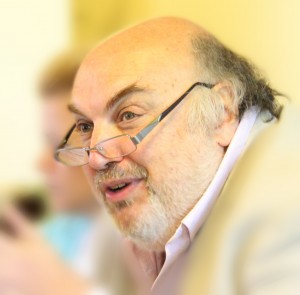 hen Coleman from Leeds University (UK): Democratic Politics and Citizen Entitlements
hen Coleman from Leeds University (UK): Democratic Politics and Citizen Entitlements
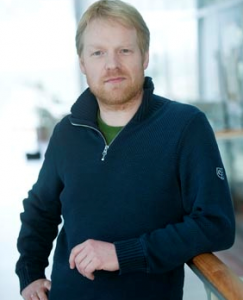 Anders Albrechtslund from Aarhus University (DK): Tracking Culture: Surveillance in the sphere of intimacy
Anders Albrechtslund from Aarhus University (DK): Tracking Culture: Surveillance in the sphere of intimacy
Gitte Stald, IT University of Copenhagen: 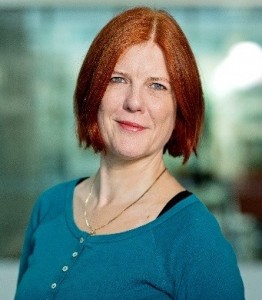 What do citizens need in order to make sense of media?
What do citizens need in order to make sense of media?
Plus research presentations from a number of DECIDIS participants.
Participation is free but registration is necessary. Send e-mail with name and affiliation to: decidisadmin@itu.dk
Find more information about the program and practical information PROGRAM SYMPOSIUM DECIDIS 190615
Jakob Linaa Jensen visits DECIDIS:
The event takes place MAY 28 from 13-15 in room 2A08
All are welcome but please send an email to decidisadmin@itu.dk
About the presentation:
The potentials for involvement, enlightenment and horisontal dialogue have increased. Further, Facebook has turned into a ”one stop public” mixing mundane updates with serious political debates. But, Facebook is a filtered public, where news are sorted based on the likes and shares of acquaintances. Such filters reduce complexities but also add to the risk of the creation of segregated public spheres for the ”like-minded”, with limited political and societal impact.
Based on examples from the Arab spring, European election campaigns and Danish political Facebook groups, I demonstrate that although citizens might feel emotionally involved and politically empowered by discussing politics via social network sites, the wider political consequences are limited. The debates only to a limited extent affect overall political decision-making and the mobilization is often short-lived. Social media seem best suited for mobilization around single issues or facilitation of online protests rather than creating lasting involvement and democratic commitment.
About Jakob Linaa Jensen:
Jakob Linaa Jensen, Ph.D. is head of research for social media, Danish School of Media and Journalism. Before that, he was an associate professor of media studies at Aarhus University for nine years. His research interests includes social media and political participation, online behavior and identity, news and social media and theoretical aspects of the relationship between individuals and society. He has published four books, two international anthologies and more than 30 peer-reviewed articles on his various research topics.
LAUNCH of DECIDIS (Democracy & Citizenship in Digital Society) on TUESDAY DECEMBER 16
- What does the future digital, political arena look like?
- How do you create a productive and fruitful online debate culture?
- What do social media mean in relation to citizens’ engagement in the political sphere?
- How do political and social movements use digital media and for which purposes?
- What digital rights and opportunities do citizens have and how do citizens protect their personal data and digital footprints?
These are some examples of the core questions that we study in DECIDIS
DECIDIS is established as a collaboration between a group of researchers at the IT University and other Danish and international researchers. The purpose is to strenghten our knowledge about how digital media shape as well as are shaped by the many new ways in which we as citizens and users interact with each other and the political system. DECIDIS wants to become established as a strong Scandinavian partner for collaboration and as a knowledge hub that through continued expansions and sharing of our knowledge can qualify and strengthen citizen participation in an increasingly digitized society. DECIDIS will as a strategic initiative develop and build on research as well as education and research- and development collaboration. Hence we will work in more areas:
- Expand knowledge about actual uses of digital media from the political-communicative perspective
- Create a basis for better design of politically oriented interaction online
- Discuss and impact future legistation and regulation in the area
The DECIDIS launch will take place in the DESIGN LAB at the IT University Tuesday December 16, 2014 from 9-11am.
STALD’S WEBLOG (ARCHIVE)
Symposium: Democracy & Citizenship in Digital Society
Keynote på Det Kriminalpræventive Råds årsmøde 2015
Memorial today 160215 in Copenhagen
Telephone history – early days ….
New report from the Net Children Go Mobile project
To blog or not to blog – that is (still) the question …
Brainwork in theory and practice

